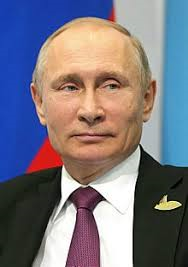Government must stop money laundering by ‘kleptocrats and rights abusers’, which is helping Putin subvert international rules
A powerful committee of MPs has warned that the government is putting national security at risk by allowing “kleptocrats and human rights abusers to use the City of London to launder their ill-gotten funds to circumvent sanctions”.
The foreign affairs select committee said the government’s lax approach to tackling international money laundering is putting money “directly into the hands of regimes that would harm the UK, its interests and its allies”.
In a hard-hitting report titled Moscow’s Gold: Russian Corruption in the UK, the committee said the government was failing to follow through on the prime minister’s “robust rhetoric” in the wake of the Skripals’ poisoning.
“Despite the strong rhetoric, President [Vladimir] Putin and his allies have been able to continue ‘business as usual’ by hiding and laundering their corrupt assets in London,” the report said.
“These assets, on which the Kremlin can call at any time, both directly and indirectly support President Putin’s campaign to subvert the international rules-based system, undermine our allies, and erode the mutually reinforcing international networks that support UK foreign policy.”
Conservative MP Tom Tugendhat, the committee chair, said: “We can no longer allow ‘business as usual’. The UK must be clear that the corruption stemming from the Kremlin is no longer welcome in our markets and we will act.
“The scale of damage that this ‘dirty money’ can do to UK foreign policy interests dwarfs the benefit of Russian transactions in the City. There is no excuse for the UK to turn a blind eye as President Putin’s kleptocrats and human rights abusers use money laundered through London to corrupt our friends, weaken our alliances, and erode faith in our institutions.”
The report said the UK’s weakness to act to stem the flow of potentially questionable Russian money was exposed just days after the UK expelled two dozen Russian diplomats following the attempted murder of Sergei and Yulia Skripal in Salisbury.
“On 16 March – two days after the government announced the expulsion of 23 Russian diplomats from the UK – Russia raised $4bn (£2.97bn) in eurobond issuances, nearly half of which were bought by investors from the UK,” the report said.
A day earlier Russian energy company Gazprom raised €750m (£656m) in a bond sale, some of which were bought by UK investors according to VTB Capital, a Russian bank subjected to US sanctions.
Following the sale, the Russian embassy in the UK tweeted:
“The ease with which the Russian government was able to raise funds in London despite the strong measures that the government took in the wake of the Salisbury attack raises serious questions about the government’s commitment to combating Russian state aggression,” the report said.
The committee also said the flotation of En+, a Russian energy company controlled by oligarch Oleg Deripaska on the London Stock Exchange last year, was also an example of “the contradictions inherent in UK government policy towards Russia”.
Tugendhat said the government must be “clear that the Kremlin is no longer welcome in our markets. We must be united in our efforts to match rhetoric with action – in the City, through government policy and among allies in the US, G7 and EU,” he added.
“We call on the Foreign and Commonwealth Office to set out a coherent strategy on Russia that clearly links together the diplomatic, military and financial tools that the UK can use to counter Russian state aggression.”
The committee recommended that the government close gaps in the sanctions regime that have allowed companies to use London markets while being sanctioned in other jurisdictions. It also suggested that sanctions be extended to target more individuals who are closely linked to President Putin’s regime.
Deripaska has previously described the grounds for including him on a US sanctions list as groundless, ridiculous and absurd.
Speaking before the report’s publication, the Russian ambassador to London, Alexander Yakovenko, said: “We believe that the statements like ‘someone is a friend of somebody’ is not the legal basis for taking decisions against someone.”
He warned that Russian citizens based in London “could go to the courts and put certain things in front of the courts. They are going to complain – some of them are preparing these moves and the government should think twice.”
He added Britain had a reputation to protect as a believer in the rule of law.
The Independent
 Lebanese Ministry of Information
Lebanese Ministry of Information



